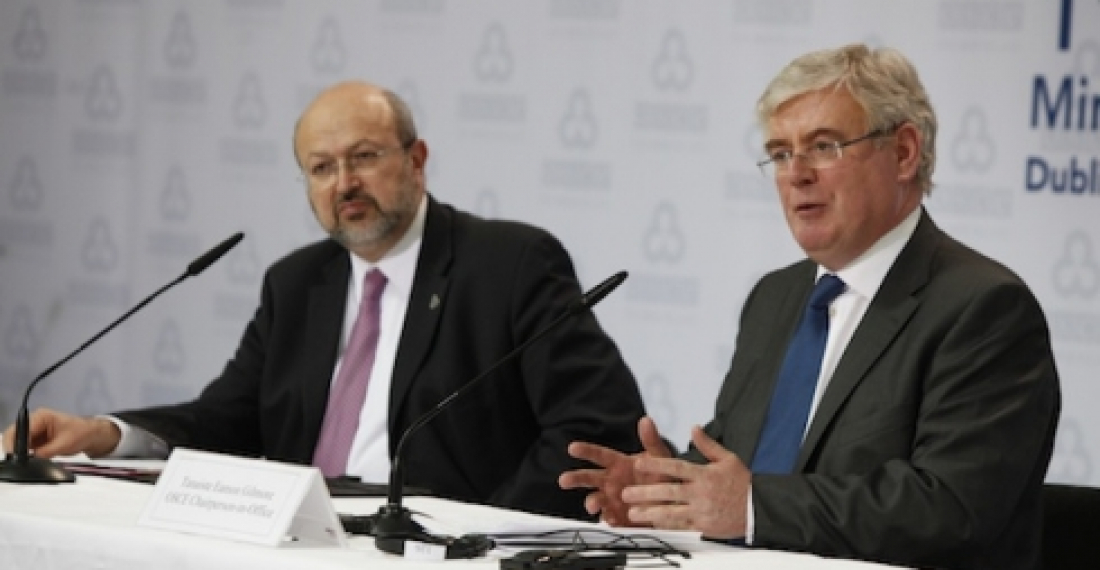The OSCE Chairperson-in-Office, Ireland's Deputy Prime Minister and Minister for Foreign Affairs and Trade Eamon Gilmore, announced Thursday - the first day of the OSCE Ministerial Council in Dublin, that agreement had been reached by the foreign ministers of the 57 participating States on a future road map for the Organization.
"We have reached political agreement to launch the Helsinki +40 process. This is a process to reinforce and revitalize the OSCE in the period between now and 2015, which is the 40th anniversary of the Helsinki Final Act," he said. The 1975 Helsinki Final Act is the Organization's founding document and one of the key agreements that helped to end the Cold War.
The Helsinki +40 process follows on the Astana Commemorative Declaration agreed by the OSCE Heads of State in 2010, in which they reaffirmed the "vision of a free, democratic, common and indivisible Euro-Atlantic and Eurasian security community stretching from Vancouver to Vladivostok, rooted in agreed principles, shared commitments and common goals".
OSCE Secretary General Lamberto Zannier welcomed the agreement, saying it would provide "firm ground" to define a vision for the Organization for the next phase and enable the OSCE to address new challenges to security.
The Helsinki +40 process also builds on the agreement made last year on the Chairmanships of the OSCE through 2015, with Ireland to be followed by Ukraine, Switzerland and Serbia. The three succeeding chairs will pursue a co-ordinated process of discussion and strategic approach for the OSCE. There will be open-ended discussions involving the States' permanent representatives to the OSCE in Vienna.
source: www.osce.org







